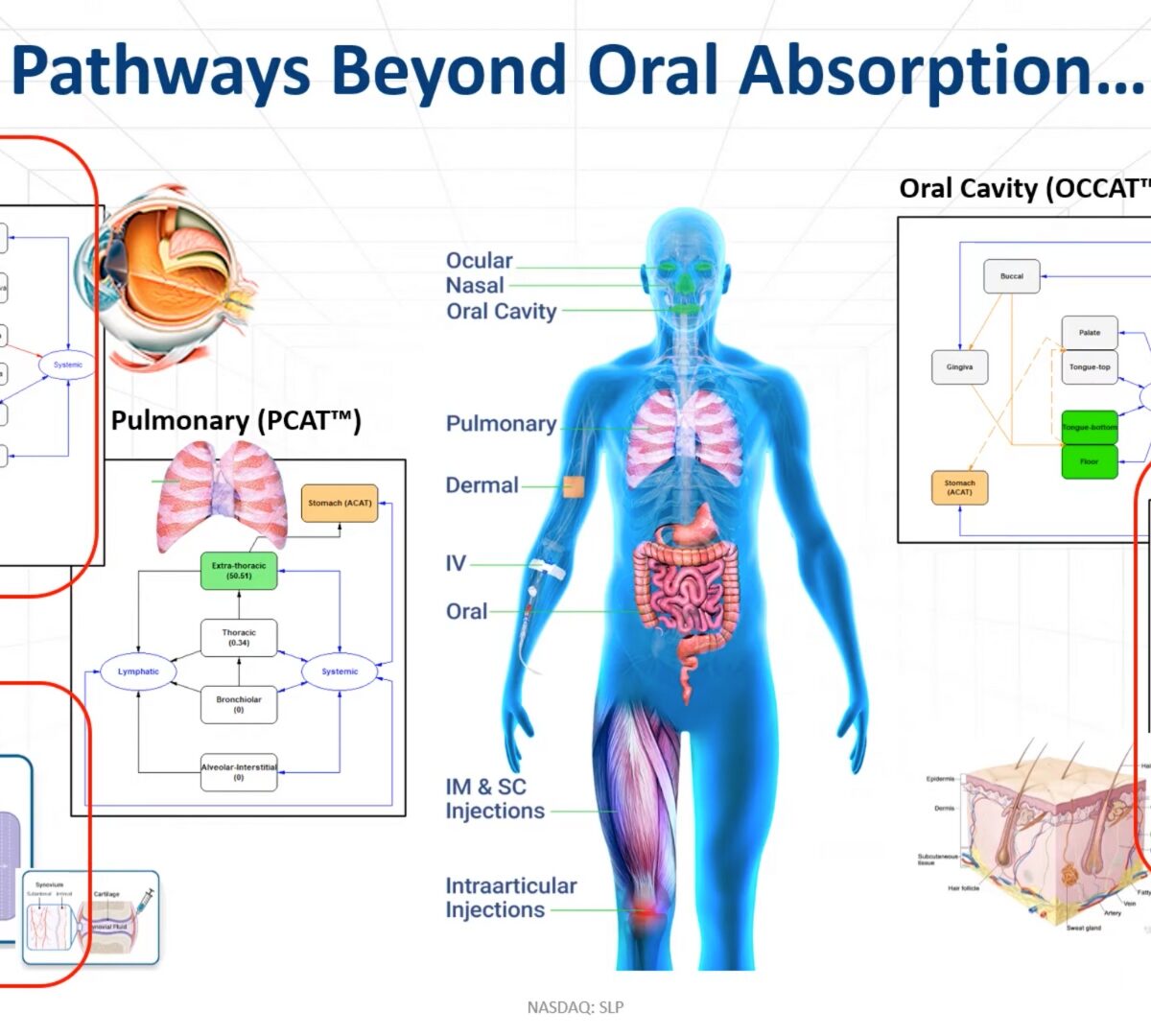Increasingly-sophisticated parameter-sensitivity analysis techniques continue to be developed, and each technique...

Simulations Plus Enters New Collaboration to Enhance Machine Learning Models for Ionization Constants (pKa)
Extensive data sharing with large pharmaceutical partner will expand property prediction space and improve model performance

Tissue regeneration effect of betulin via inhibition of ROS/MAPKs/NF-ĸB axis using zebrafish model
Betulin is the primary anti-inflammatory component of Betula platyphylla suk. cortex (birch bark), a time-honored Traditional Chinese Medicine (TCM) for healing trauma...

Nanoclay-Based Composite Films for Transdermal Drug Delivery: Development, Characterization, and in silico Modeling and Simulation
Purpose: Halloysite nanotubes (HNTs) are a versatile and highly investigated clay mineral due to their natural availability, low cost, strong mechanical strength, biocompatibility, and binding properties.

Case study on the impact of the source of metabolism parameters in next generation physiologically based pharmacokinetic models: Implications for occupational exposures to trimethylbenzenes
Physiologically based pharmacokinetic (PBPK) models are a means of making important linkages between exposure assessment and in vitro toxicity. A key constraint on rapid...

August 2022 News/Events
An estimated 236,740 people in the U.S. will be diagnosed with lung cancer in 2022. That’s 649 people each day, 27 people each hour, and one person every 2½ minutes.

Recent trends in pharmaceutical analysis to foster modern drug discovery by comparative in-silico profiling of drugs and related substances
Pharmaceutical drug analysis (PDA), besides quantifying drugs and related substances (RS), can enrich drug discovery (DD) by suggesting new leads. PDA may...

Next Gen Tech for QST/QSP & PBPK Modeling
Simulations Plus is excited to share some technical advances that have been made to two of the feature models developed by the DILIsym Services division!

Simulations Plus Presented New Scientific Developments at PAGE 2022
Several posters and oral presentations involved the use of MonolixSuite®

FDA’s Project Optimus Initiative for Oncology Drug Development
Oncology drugs have historically followed the dosing strategy that “more is better” until the maximum tolerated dose (MTD) is reached.

Efficient drug development of oseltamivir capsules based on process control, bioequivalence and PBPK modeling
Oseltamivir phosphate is used to treat influenza.

Simulations Plus Celebrates 25-Year Anniversary with $25,000 Gift to Nonprofit International Organization for Childhood Cancer
Tenured employees support St. Jude in finding cures and saving children

Complex Delivery Routes and Generics: The Next Frontier for PBBM/PBPK Modeling
Generic drug development for locally acting drug products is a fast-growing field of interest

Current Approaches for Predicting Human PK for Small Molecule Development Candidates: Findings from the IQ Human PK Prediction Working Group Survey
Accurate prediction of human clearance (CL) and volume of distribution at steady state (Vd,ss) for small molecule drug candidates is an essential component of assessing likely efficacious dose and clinical safety margins.

Corrosion inhibition and ecotoxicological assessment of 1,2,3-triazolic alcohols
Here, it is reported the synthesis of two triazole derivatives (1-phenyl-1H-1,2,3-triazole-4-yl)methanol (3a) and (1-(4-nitrophenyl)-1H-1,2,3-triazole-4-yl)methanol (3b)) and...

Physiologically Based Pharmacokinetics Modeling in Biopharmaceutics: Case Studies for Establishing the Bioequivalence Safe Space for Innovator and Generic Drugs
For successful oral drug development, defining a bioequivalence (BE) safe space is critical for the identification of newer bioequivalent formulations or for setting of clinically relevant in vitro specifications to ensure drug product quality.

Population pharmacokinetics of vericiguat in patients with heart failure with reduced ejection fraction: an integrated analysis
Vericiguat, a novel stimulator of soluble guanylate cyclase (sGC), is indicated for the treatment of patients following a hospitalization for heart failure or need for outpatient intravenous diuretics, with symptomatic chronic heart failure and ejection fraction less than 45%. Pharmacokinetic (PK) data from the phase II trial SOCRATES-REDUCED (Soluble Guanylate Cyclase Stimulator in Heart Failure Study) and the...
